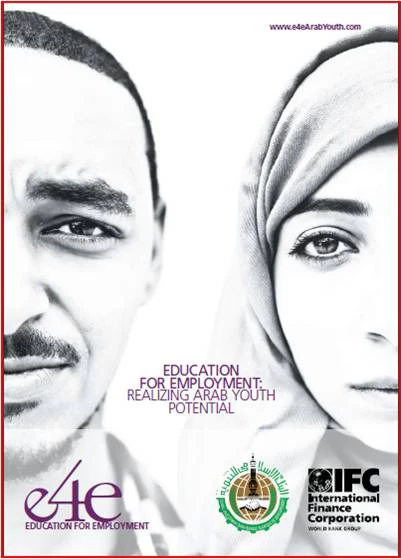
• The Arab World has 25% youth unemployment – the highest in the world – and female youth unemployment is even higher reaching over 30%
• The economic loss of youth unemployment costs US$40 to $50 billion annually – equivalent to the GDP of countries like Tunisia or Lebanon
• One third of the population in the region is below the age of 15 – a further third is aged 15 to 29.
• Two thirds of young people surveyed believe they do not have the skills required to get a good job
It is widely held that the revolutions taking place across the Middle East have been fuelled by a generation of youth who are over-educated or poorly-educated and unemployed. Education for Employment (e4e) is an initiative that seeks to ‘realize Arab youth potential’ by providing education opportunities that focus on employability. The World Bank Group's International Finance Corporation (IFC) and the Islamic Development Bank commissioned research for 22 countries across the Arab World with ‘deep dive’ research undertaken in 9 countries. The report found that demand for e4e solutions is substantial and yet supply is nascent. It also identified that critical enablers are missing, such as quality and standard setting, funding mechanisms, internship opportunities and information for young people on the value of different types of education.
The report’s focus is on the potential role for the private sector to respond – but the ‘call to action’ identifies critical roles for a range of stakeholders including government, civil society, youth, public and private sector education institutions and private employers. Queen Rania Al Abdula of Jordan, e4e’s Honorary Patron said in her opening remarks during the launch event that “e4e urges us to up our game and work together.
Help contribute to e4e’s success – share your experience:
• Do you know of existing initiatives that address e4e issues that would benefit from support and could be scaled up to meet the needs of more youth?
• Do you have examples of good practice in establishing regional standards or professional associations?
• What lessons can we learn from previous initiatives which will help ensure success for e4e?
• Join the discussions on Facebook and Twitter and visit our website, www.e4eArabYouth.com.


Join the Conversation